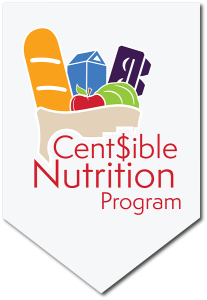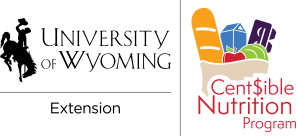The Great Potato Harvest 2021
Baked, boil, mashed, grilled, roasted…oh, there are so many ways to enjoy potatoes!
This fall, potatoes freshly dug at the James C. Hageman Sustainable Agriculture Research and Extension Center (SAREC) are on their way to food pantries across the state after a harvest on September 24th, 2021.
“What we are doing today is using some of the excess potatoes that we typically have and we’re going to be donating these to the Food Bank of Wyoming,” said Brian Lee, the Agricultural Economist and a research scientist at SAREC.
SAREC sits just off highway 157 in Goshen County. Fields of corn and potatoes grow behind the cluster of buildings and silos. Usually grown for research and outreach efforts, this year some of the potatoes are destined for tables around the state due to a new partnership between SAREC, the Cent$ible Nutrition Program (CNP), and Food Bank of Wyoming.
“It is exciting to partner with SAREC because of the large crop of potatoes that could feed many people in Wyoming,” said Mindy Meuli, director of CNP.
In late 2019, Lee reached out to Meuli about donating extra potatoes to support food security efforts in the state. In 2020, COVID-19 prevented the potatoes from being donated, but this year, the pieces came together.
“We thought it was an obvious collaboration [between CNP and SAREC] that should happen,” said Lee. “So, Mindy helped coordinate with the food bank and the Challenge Academy and other UW personnel to make this happen.”
The potatoes for this project come from a field used for SAREC outreach programs with elementary school students.
”We have elementary students come out from local communities and we go over a potato educational program and then we come out to the field and let the students have a chance to dig and also bag potatoes that they can take home,” said Lee.
To help harvest the potatoes for donation, 20 cadets from the Wyoming Cowboy Challenge Academy (WCCA) joined staff from SAREC, UW Extension, and CNP. WCCA is an accredited special purpose school based in Guernsey, Wyoming. The school works with non-traditional learners to help them earn high school credits in a quasi-military environment, where they learn leadership and coping skills as well as the value of giving back to their communities. As part of the graduation requirements from the WCCA, cadets complete 40 hours of service to the community.
Community projects offer cadets different experiences, said Deidra Wilson, an English teacher at WCCA, who also attended the harvest.
“I think a lot of the community service that they do gives them different aspects of what job life looks like. It’s a good way to give them chances to try something they’ve never tried before,” said Wilson.
For Ethan Smither, a cadet returning to Wyoming from Illinois, the harvest day provided a sense of familiarity.
“I’ve worked on a farm, so it feels natural for me,” Smither said.
The work also feeds into his interest for the future.
“After Challenge Academy I plan to go to the Airborne Rangers in the Army and then after that I’m going to try and start my own ranch, my own farm,” he said, adding that he wants to stay in Wyoming.
Prior to the arrival of volunteers, the potatoes were dug up with a tractor and laid on the open ground. Under a warm autumn sun, the group of volunteers moved along the rows, picking out undamaged potatoes to bag. Bags were then loaded onto a flatbed trailer to be weighed before being loaded onto pallets to go in the Food Bank of Wyoming truck.
Nearly 6,500 pounds of potatoes were harvested and have made available to food pantries in Wyoming.
“We are going to put the potatoes on our mobile pantries and give them to our partner pantries around the state,” said Tony Woodell, Director of Food Bank of Wyoming. “This is a great gift and we look forward to sharing it around the state.”
The mission of Food Bank of Wyoming is to ignite the power of community to nourish people facing hunger.
“This is a great illustration of that,” said Woodell. “We are collaborating with communities, with growers, and with partners.”
Lee said that potatoes are a good crop for a project like this because they store well, making their shelf life longer than many fresh produce items.
“One thing potatoes are really good at is feeding people,” Lee added.
Concerns over shelf life is one of the challenges of providing fresh produce, according to Woodell.
“Anytime we can provide produce to individuals, the nutritional value is high. The shelf life is usually short, so therefore to procure produce through local sources extends the shelf life because there is less transportation involved. Local produce allows people to have nutritious foods on their tables. At the end of the day, that’s what we’re all about,” said Woodell.
While this is the first time SAREC, Food Bank of Wyoming, and CNP have collaborated, Meuli hopes this is just the beginning of a strong partnership.
“I hope to see more opportunities for UW research and extension centers to find ways to support local food pantries and food security efforts in the state,” she said.
The local nature of this partnership is part of what makes it special.
“Everyone is excited to get a Wyoming product for Wyoming people who are facing hunger. We just want to say thank you to SAREC for providing the potatoes and we look forward to future partnerships,” said Woodell.
To further support this initiative, local CNP educators covering every county have potato recipes and fact sheets to distribute, and are available to answer questions on preparation, storage, and food safety.

